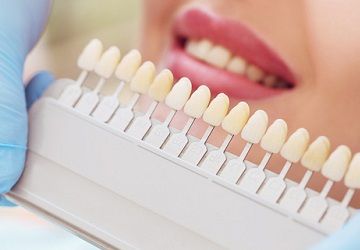Recognizing Body Dysmorphic Disorder in Cosmetic Dentistry
Cosmetic dentists and surgeons see traits of Body Dysmorphic Disorder more than any other clinician. The way you handle these cases can put you at legal and financial risk. Find out what one cosmetic dentist advises.

Even the best dentist will never be able to make a body dysmorphic patient happy.
Dr. Michael Teitelbaum, owner and director at Briarcliff Center for Esthetic Dentistry, had an inkling that something was off about his patient’s behavior.
It started with the reason the patient came into Teitelbaum’s practice. Sure, many people had sat in the same chair to have their occlusions adjusted, but this case was different.
“He said that his life would be so much better if he could have the bite adjusted on not one side of his mouth, not a section of his mouth, but one particular corner of one tooth,” Teitelbaum recalled. “It was very unusual.”
The second red flag was the miles-long list of other clinicians the patient consulted prior to Teitelbaum, all of whom were unable to successfully treat the man.
“There was one clinician who lectures a lot and who I really respect, and he had been to him 17 times to have his bite adjusted. If this guy couldn’t satisfy him, then what were the odds that I could?” Teitelbaum said.
As it turns out, he couldn’t — no matter how flawless a procedure’s results, the patient’s apparent Body Dysmorphic Disorder (BDD) would never allow him to perceive any improvement.
Warning Signs, Preparation and How to Help
BDD, defined by a persistent and intrusive preoccupation with a minor or imagined defect in one’s appearance, occurs in roughly 3 percent of the population, according to a study. Cosmetic dentists and surgeons deal with these patients infrequently, but in higher numbers than other practitioners. And if those dentists aren’t prepared for BDD sufferers, legal and financial problems aren’t far off.
Patients with a BDD diagnosis cannot legally consent to cosmetic treatments like whitening or occlusion adjustment. Diagnosed or not, treating these patients is an exercise in futility.
“Ethically, it’s the wrong thing to do because the person has a psychiatric condition. It’s like trying to take advantage of someone who is drunk on a date — they’re not in control,” Teitelbaum said. “From a financial standpoint, it doesn’t pay to do the treatment because the patient is never going to be satisfied, and the dentist will have to redo the procedure.”
BDD patients don’t materialize often, but when they do, dentists need to be aware of the three common complaints that unite sufferers of this psychiatric condition.
Before pressing the patient about their fixations, it is crucial for the dentist’s legal protection that a trusted staff member, such as a receptionist or dental assistant, is present to witness the conversation. The number of people in the room must be kept to a minimum to secure patient confidentiality.
“If the person brings up that they can’t hold a job, can’t leave the house, and think about killing themselves, those are the three biggies,” Teitelbaum said. “There’s no reason to kill yourself because your teeth aren’t white enough. It’s not rational, and it requires diagnosis.”
Asking the right questions, the right way, is key to helping BDD sufferers, according to the study. When did the patient become aware of the problem? Why are they seeking treatment now, and how much does this problem consume their lives? If a patient is spending hours a day fixating on what most would consider a minor issue, that is not a patient a dentist should treat.
Most importantly, the dentist needs to put ego aside and accept that no matter what they do, they are never going to satisfy a person with BDD.
“It’s not anything a dentist should even try to fix on their own,” Teitelbaum warned. “It's very tricky, because dentists aren't great at referring to other practitioners in general, and it's extraordinarily difficult to refer someone to a psychiatrist. But that’s what you need to do, and you need to do it in a way that doesn’t offend the patient.”
Discover more Dentist’s Money Digest® news here.
RELATED: More Coverage on
- Q&A with Dr. Edward Alvarez: How to Market Cosmetic Services, Part I
- 5 Ways to Make Your Orthodontic Practice Gen-Z Friendly
- Practitioner Breaks New Ground with Outside-In, Inside-Out Approach
ACTIVA BioACTIVE Bulk Flow Marks Pulpdent’s First Major Product Release in 4 Years
December 12th 2024Next-generation bulk-fill dental restorative raises the standard of care for bulk-fill procedures by providing natural remineralization support, while also overcoming current bulk-fill limitations.